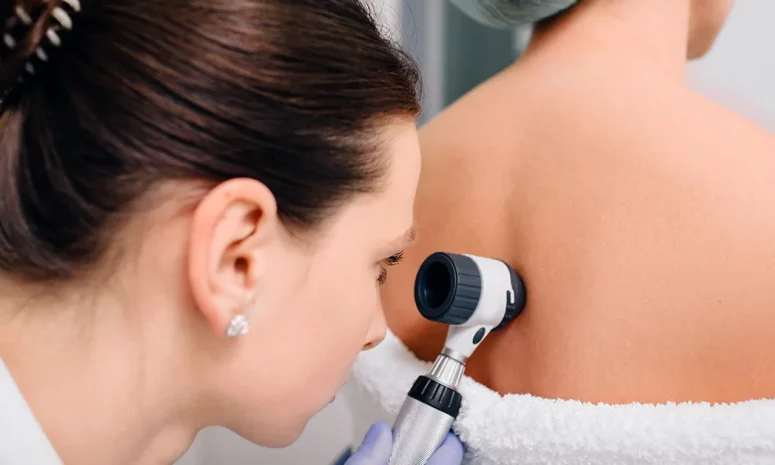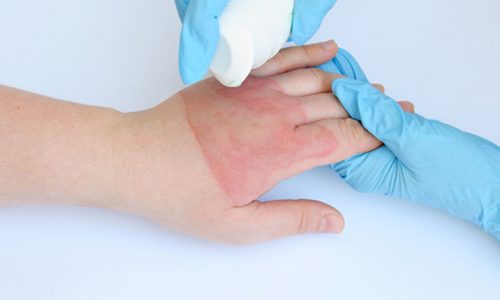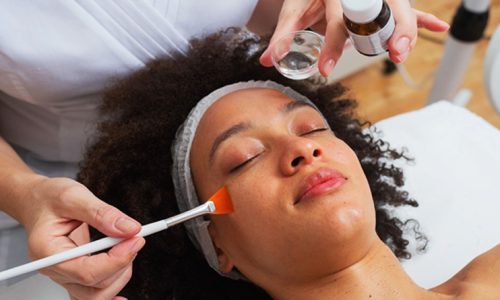
Summers can be great for outings and trips but they also bring lots and lots of skin problems with them. The increased exposure to sunlight and excessive sweating wreaks havoc on your skin. The hot and humid climate can be an invitation to infections as well. Despite your best efforts you may come up with skin problems that are caused by rising temperatures and spending your time outdoors. It’s not possible to avoid outdoor work and activities throughout the summer but we can prepare and learn how to tackle the skin problems that come with summer.
1. Heat Rash or Miliaria Rubra
It is the most common problem among people of all ages. Due to excessive heat, the sweat glands get blocked and it builds up under the skin causing rash like itchy and tiny bumps. When these bumps burst and the blocked sweat is released a prickly sensation is felt on skin. Anything that can be done to diminish profuse sweating can help reduce the risk. Some tips to decrease the chances of getting heat rash include:
- Wear light and loose cotton clothes.
- Exercise outdoors or in an air conditioned room.
- Stay cool by taking cool showers and staying in the fan or air conditioner.
2. Acne Breakouts
Acne breakouts are more common in summer as compared to other seasons due to rise in temperatures. When sweat mixes with bacteria and oil on the skin it clogs the pores, which leads to breakouts. People with oily and acne prone skin are mostly affected. Certain precautions can be taken to avoid acne breakouts are:
- Cleanse your skin with salicylic acid based cleansers to keep excessive oil at bay
- Wash your face more often.
- Use non-comedogenic skin care and makeup products. These products do not clog pores so they also keep the acne breakouts away.
3. Sun Burns
Staying outdoors for longer periods of time can make your skin sunburnt. UVA and UVB rays from the sun can damage the skin and cause inflammation, dryness and blisters. Therefore, applying sunscreen is necessary to protect the skin from the harmful rays. Sun burns can also increase the risk of skin cancer so when out in the sun seek shade and wear sun protective clothes. If you get sunburnt do this:
- Apply hydrocortisone ointment, it will relieve the burning sensation in a few hours.
- Apply chilled milk, yogurt and cucumber juice to the sunburnt area. This helps in treating the sun burns.
4. Folliculitis
Summers also bring in the risk of folliculitis. When the hair follicles get infected, you develop folliculitis. The infected follicles look like pimples but they are also itchy and tender. Folliculitis can occur anywhere on the body. High levels of chlorine in pool water can also cause it. To avoid folliculitis:
- Change clothes after workout or sweaty outdoor activities.
- Wear light and loose fitting clothes.
- Step up your water intake.
5. Heat Boils or Furuncles
Summer’s heat can also cause heat boils known as furuncles. These are caused by bacteria that breeds on moist, sweaty skin. Boils usually start as reddish or purplish tender bumps. Then they quickly fill with pus, grow bigger and more painful until they rupture and drain. If you notice heat boils erupting, visit Dr. Zafar Ahmed immediately, they may prescribe oral antibiotics or antibiotic ointments.
6. Dry and Irritated Skin
In Spite of the hot and humid environment, the skin can still get dry and irritated. It is caused by exposure to sun, pool water and staying in the air conditioner for a long duration. To prevent dry and irritated skin:
- Shower and shampoo after using pools.
- Apply water resistant sunscreen when going outdoors.
- Use lukewarm instead of hot water for bathing.
- Use moisturizer after a shower or bath.
7. Melasma
It’s a skin condition that causes patches and spots usually on the face. These patches are darker than the natural skin tone. They are caused by UV radiation from the sun. To prevent melasma, avoid excessive exposure to the sun. Vitamin C is an effective remedy that can be used to treat melasma.
8. Insect bites and Stings
During summer months, spiders, mosquitoes, ants and bees all come out of their holes so it’s pretty common to get insect bites. If the insect bite is sore and is not healing on its own, visit a dermatologist. In the meantime at home you can:
- Use an ice pack or cold compress to soothe the skin.
- For itching, baking soda paste is effective.




